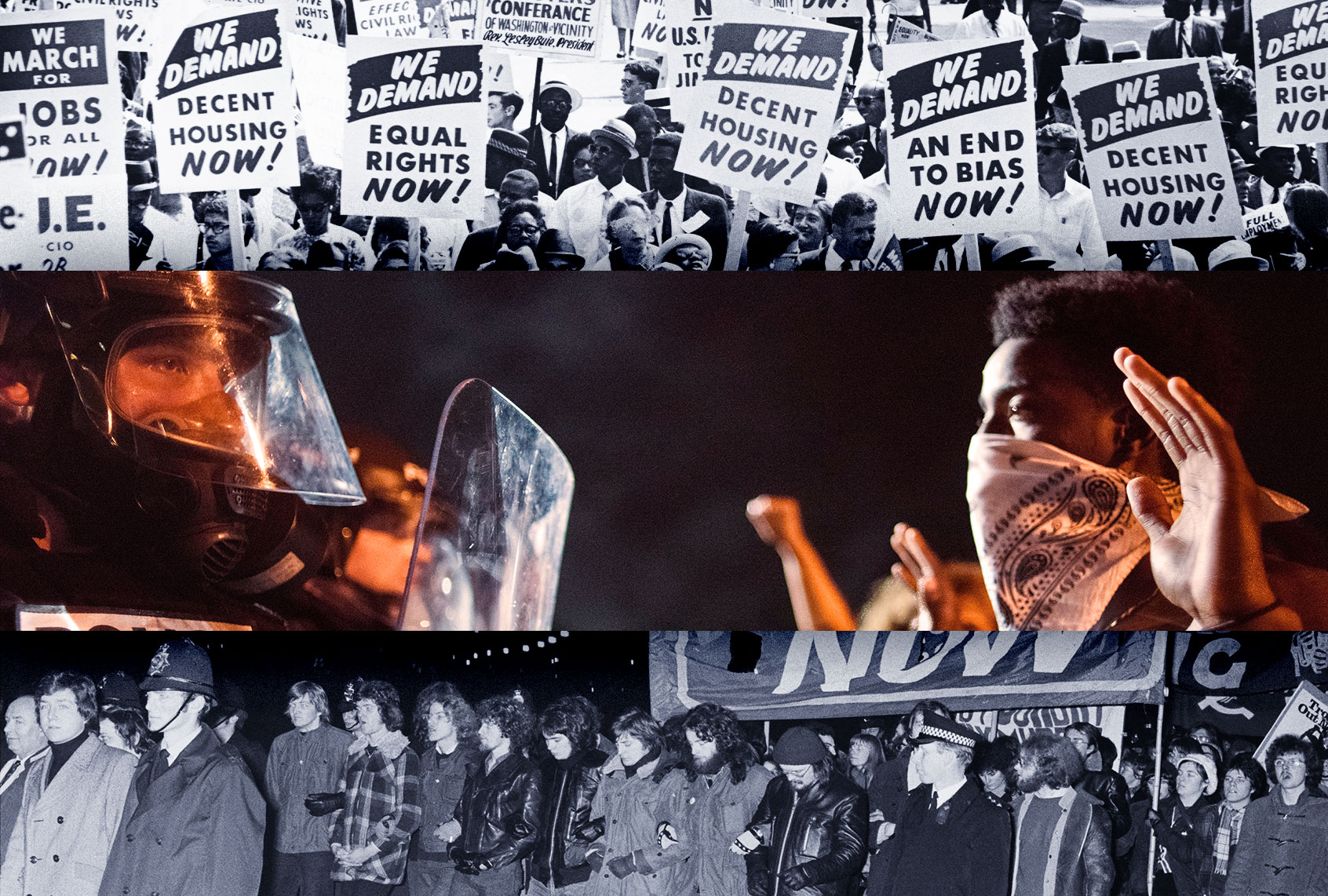Eight years before the U.S.-backed regime in South Vietnam collapsed, I stood with high school friends at Manhattan’s Penn Station on the night of April 15, 1967, waiting for a train back to Washington after attending the era’s largest antiwar protest so far. An early edition of the next day’s New York Times arrived on newsstands with a big headline at the top of the front page that said “100,000 Rally at U.N. Against Vietnam War.” I heard someone say, “Johnson will have to listen to us now.”
But President Lyndon Johnson dashed the hopes of those who marched from Central Park to the United Nations that day (with an actual turnout later estimated at 400,000). He kept escalating the war in Vietnam, while secretly also bombing Laos and Cambodia.
During the years that followed, antiwar demonstrations grew in thousands of communities across the United States. The decentralized Moratorium Day events on October 15, 1969 drew upward of 2 million people. But all forms of protest fell on deaf official ears. A song by the folksinger Donovan, recorded midway through the decade, became more accurate and powerful with each passing year: “The War Drags On.”
As the war continued, so did the fading of trust in the wisdom and morality of Johnson and his successor, Richard Nixon. Gallup polls gauged the steep credibility drop. In 1965, just 24 percent of Americans said involvement in the Vietnam War had been a mistake. By the spring of 1971, the figure was 61 percent.
The number of U.S. troops in Vietnam gradually diminished from the peak of 536,100 in 1968, but ground operations and massive U.S. bombing persisted until the signing of the Paris Peace Accords in late January 1973. American forces withdrew from Vietnam, but the war went on with U.S. support for 27 more months, until – on April 30, 1975 – the final helicopter liftoff from the roof of the U.S. embassy in Saigon signaled that the Vietnam War was indeed over.
By then, most Americans were majorly disillusioned. Optimism that public opinion would sway their government’s leaders on matters of war and peace had been steadily crushed while carnage in Southeast Asia continued. To many citizens, democracy had failed – and the failure seemed especially acute to students, whose views on the war had evolved way ahead of overall opinion.
We need your help to stay independent
At the end of the 1960s, Gallup found “significantly more opposition to President Richard Nixon’s Vietnam policies” among students at public and private colleges than in “a parallel survey of the U.S. general public: 44 percent vs. 25 percent, respectively.” The same poll “showed 69 percent of students in favor of slowing down or halting the fighting in Vietnam, while only 20 percent favored escalation. This was a sharp change from 1967, when more students favored escalation (49 percent) than de-escalation (35 percent).”
Six decades later, it took much less time for young Americans to turn decisively against their government’s key role of arming Israel’s war on Gaza. By a wide margin, continuous huge shipments of weapons to the Israeli military swiftly convinced most young adults that the U.S. government was complicit in a relentless siege taking the lives of Palestinian civilians on a large scale.
A CBS News/YouGov poll in June 2024 found that Americans opposed sending “weapons and supplies to Israel” by 61-39 percent. Opposition to the arms shipments was even higher among young people. For adults under age 30, the ratio was 77-23.
Emerging generations learned that moral concerns about their country’s engagement in faraway wars meant little to policymakers in Washington. No civics textbook could prepare students for the realities of power that kept the nation’s war machine on a rampage, taking several million lives in Southeast Asia or supplying weapons making possible genocide in Gaza.
For vast numbers of Americans, disproportionately young, the monstrous warfare overseen by Presidents Johnson and Nixon caused the scales to fall from their eyes about the character of U.S. leadership. And like President Trump now, President Biden showed that nice-sounding rhetoric could serve as a tidy cover story for choosing to enable nonstop horrors without letup.
No campaign-trail platitudes about caring and joy could make up for a lack of decency. By remaining faithful to the war policies of the president they served, while discounting the opinions of young voters, two Democratic vice presidents – Hubert Humphrey and Kamala Harris – damaged their efforts to win the White House.
A pair of exchanges on network television, 56 years apart, are eerily similar.
Want a daily wrap-up of all the news and commentary Salon has to offer? Subscribe to our morning newsletter, Crash Course.
In August 1968, appearing on the NBC program "Meet the Press," Humphrey was asked: “On what points, if any, do you disagree with the Vietnam policies of President Johnson?”
“I think that the policies that the president has pursued are basically sound,” Humphrey replied.
In October 2024, appearing on the ABC program "The View," Harris was asked: “Would you have done something differently than President Biden during the past four years?”
“There is not a thing that comes to mind,” Harris replied.
Young people’s votes for Harris last fall were just 54 percent, compared to 60 percent that they provided to Biden four years earlier.
Many young eyes saw the war policy positions of Hubert Humphrey and Kamala Harris as immoral. Their decisions to stay on a war train clashed with youthful idealism. And while hardboiled political strategists opted to discount such idealism as beside the electoral point, the consequences have been truly tragic – and largely foreseeable.


